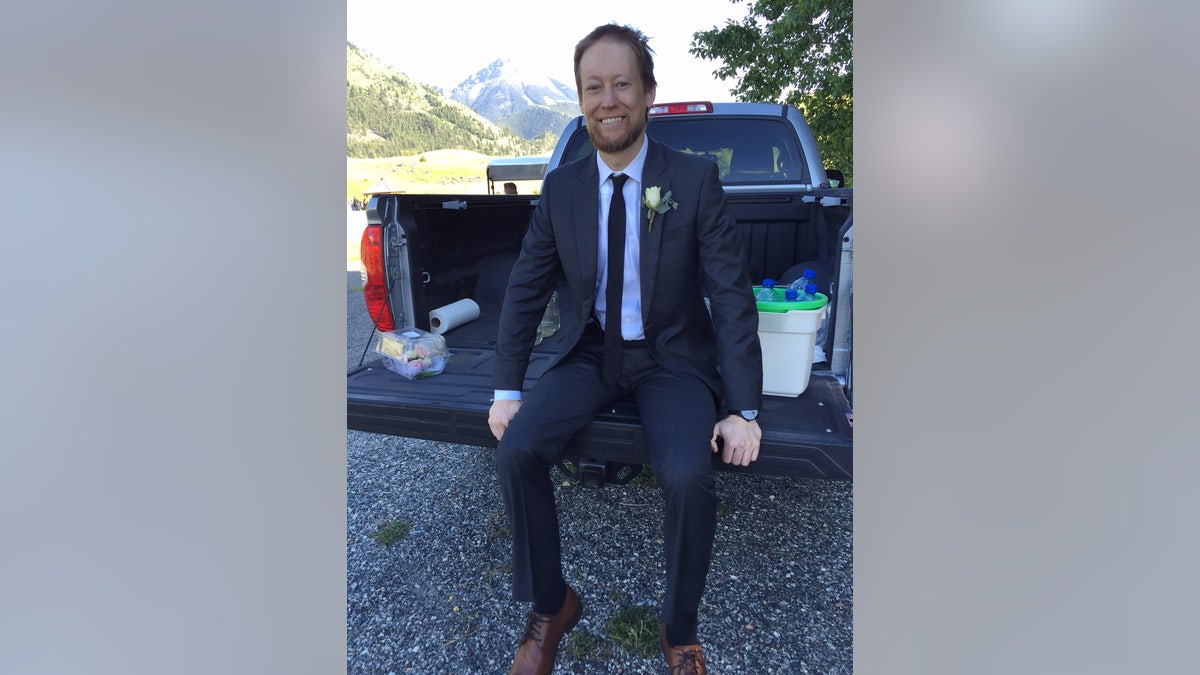
Jason Carter died in May after battlng leukemia for more than four years. (Carter Family)
A Minnesota family’s recent $1.25 million donation to the Be The Match Foundation will go toward building a better network for patients and families desperately searching for potentially life-saving clinical trials. Bob and Diana Carter, of Wayzata, recently made the donation to the Minneapolis-based nonprofit run by the National Marrow Donor Program in honor of their son, Jason Carter, who died in May 2016 after battling leukemia for more than four years.
Bob and Diana, both 62, were traveling back from Montana in February 2012 when then 24-year-old Jason called about a bad blood test. Jason had suspected he was suffering from symptoms of mononucleosis, but the test revealed it was actually acute lymphoblastic leukemia (ALL).
“He had the kid form, ALL, which is very treatable,” Diana told Fox News. “But he found out about a week later that he had a chromosome mutation which is very difficult to treat.”
Initially, Jason underwent a month of intensive treatment involving chemotherapy and received a bone marrow transplant from an unrelated donor set up by Be The Match. His cancer went into remission, and for more than a year, he was able to return to traveling with friends and continue his studies.
But in January 2014, the cancer returned, and the Carters learned about the complex and difficult world of clinical trials. Bob had read about a treatment being explored at the University of Pennsylvania that targeted Jason’s mutation, but his doctors were unaware of it and directed the family to ClinicalTrials.Gov, the national database for trials and ongoing research across the country.
“We started searching and trying to find some information that would work for Jason’s type of disease,” Diana said. “Then we talked to about five centers that were offering a program — we ended up going to visit the National Institutes of Health in Bethesda and Memorial Sloan Kettering [Cancer Center in New York].”
In June 2014, the Carters chose to pursue an option at Memorial Sloan Kettering that involved removing Jason’s T-cells and reengineering them to become attack cells before they were infused back into him. In healthy people, T-cells help fight disease on behalf of the immune system, but due to Jason’s ailment, his T-cells were weakened. During the trial, Jason contracted a life-threatening fungal infection that required additional, aggressive treatment.
Meanwhile, chemotherapy had taken its toll on Jason’s bone marrow, and doctors determined he would need another transplant. Before they could explore options, Jason went into a full relapse in March 2015, but this time, the cancer took on a different mutation, so the Carters had to go back to the drawing board and search for a new set of clinical trials.
“We found a trial that was being done at Cleveland Clinic in Ohio,” Diana told Fox News. “So we packed up the car and went out to Cleveland Clinic thinking we’d probably be there for a while, but the doctor said he needed to fail one more treatment before he was eligible for her treatment.”
The Carters returned home, and continued searching and scouring the internet for answers.
“We’re researching and trying to find a cure, a way to kill the cancer and help him survive,” Bob told Fox News. “He had an indomitable will to live. He really wanted to make a difference like we all do, have a normal life. We did everything we could to help him.”
Through the website, the Carters tracked down a potential trial to target Jason’s mutation at University of Texas M.D. Anderson Cancer Center in Houston and inquired about it. The doctor evaluating Jason was unaware of the trial, but had Jason enrolled and it worked to force the cancer into remission. Be The Match arranged for a cord blood transplant in July.
While he didn’t suffer any major complications from the transplant, he had contracted another life-threatening virus. Over the following months, the harsh treatments began to cause stomach issues, and he was given immunosuppressive drugs to lessen symptoms, but then the cancer returned.
“On May 10 Jason said, ‘Let’s get me healthy,’” Diana said. “On May 11 he said, ‘I’m done, take me home,’ and on May 12, he died at home.”
The Carters met with Be The Match following his death and discussed how to honor Jason in a way that would help to benefit others.
“After all we’ve been through, we really felt that incredible need to get more patients into trials so we can advance medicine,” Bob said.
Through the Carters’ donation, Be The Match started the Jason Carter Clinical Trials Program, which will work to help patients find ongoing clinical trials that are tailored to their illness. The program’s website will provide patients and families with resources to better understand options and logistics of enrollment.
“We are eternally thankful to the doctors and medical staff for their care,” Diana said. “But this is something we can do to get patients more aware of and get more access so that we can help improve the outcomes.”
